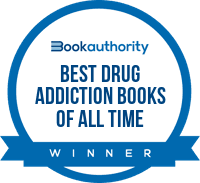Recovering from addiction is a tough, but rewarding, road. Unfortunately, addiction is complex and many people trying to recover from addiction and rebuild their lives make some fatal mistakes. Here are five common mistakes that recovering addicts make, and how to avoid them.
1. Trying to control your alcohol or drug intake
If you're really an addict, and not someone who is partying a bit too hard, then controlling your use of alcohol or drugs is completely impossible. Some addicts try, and fail, at this for many years until they finally realise it can't be done. The very nature of addiction means that it is impossible to control your use of a particular substance once the first drink or drug is down the hatch. The first drink or drug is the one that sparks off the neurological processes that cause a binge, so controlling your intake after the first drink or drug becomes impossible once you're completely addicted.
Addiction is progressive, so if you find control tricky, but not yet impossible, you can be sure that continuing to drink or take drugs will push you into a place where you're out of control. The only drinkers and drug users who don't necessarily need to be abstinent are those who can consistently stop after one or two drinks or hits.
2. Swapping or switching substances
"Maybe it's just vodka I can't control." "Maybe it's just crack that sends me crazy." "Perhaps if I switch down to a weaker drink or a softer drug, then that will make a difference?" Wrong - it won't. If you truly have an addiction to alcohol or drugs, you will be addicted to all forms of your particular poison. Abstinence is the only way in the end. You are only delaying the inevitable by swapping and switching the substances you use. In fact most addicts find that abstinence from anything mind-altering is ultimately the healthiest way to recover in the long-term. Some people take this as far as nicotine, coffee and sugar, while others are just happy to have given up drinking and drugging.
3. Not doing recovery work
If you're addicted to a substance, you have done something quite serious to your brain. You have built a neural pathway in it that screams out "Drink! Drink! Drink!" or "Drugs! Drugs! Drugs!" You may have been forming this neural pathway for a large portion of your life. It is now strong and your default response to pain, stress, socialising and celebrating is to have a hit of your favourite substance. Drinking or taking drugs has become perhaps your only coping mechanism.
You've basically filled your brain, and probably your life, with all manner of negativity, toxins and general crud. Why, then, would you imagine that you wouldn't have to put just as much effort into recovery as you did into drinking or drugging? You have to counter that negative neural pathway by building a new, positive one in your brain. Even if you're very determined to stop, you have to back that conviction up with some solid recovery work. Doing the 12 steps or working with an addiction therapist are good ways of starting to recover properly.
4. Believing you're cured of addiction
Alcoholism and drug addiction are often illnesses of denial. I sometimes hear of people in long-term recovery returning to drink or drug use again, because they believe that after some time off the sauce or the substances, they will be able to handle it. Let me tell you, I know people who have achieved ten years or twenty years of sobriety and when they pick up the booze again, believing they must be cured by now, within a week they are right back to where they started again - or worse.
It is possible to recover from alcoholism and drug addiction, meaning that your life vastly improves without the substance in it any longer. In those cases, you may hardly ever feel cravings and be a much happier person overall. BUT, this does not mean that you can return to drink or drug use - your neurological response to these substances will remain with you, so you must remain abstinent for the long-term.
5. Trying to recover alone
Addiction is a complex and confusing problem. It may have already baffled and frustrated you, so why would you want to struggle with it alone? There is nothing shameful in getting support, whether that's through Fellowship groups, relapse prevention groups or with the support of an addiction therapist. You wouldn't expect to have to recover from any other illness alone, so why this one? Put your pride aside, and ask for help. You'll be glad you did.
by Beth Burgess, Therapist and author of The Recovery Formula and The Happy Addict.





